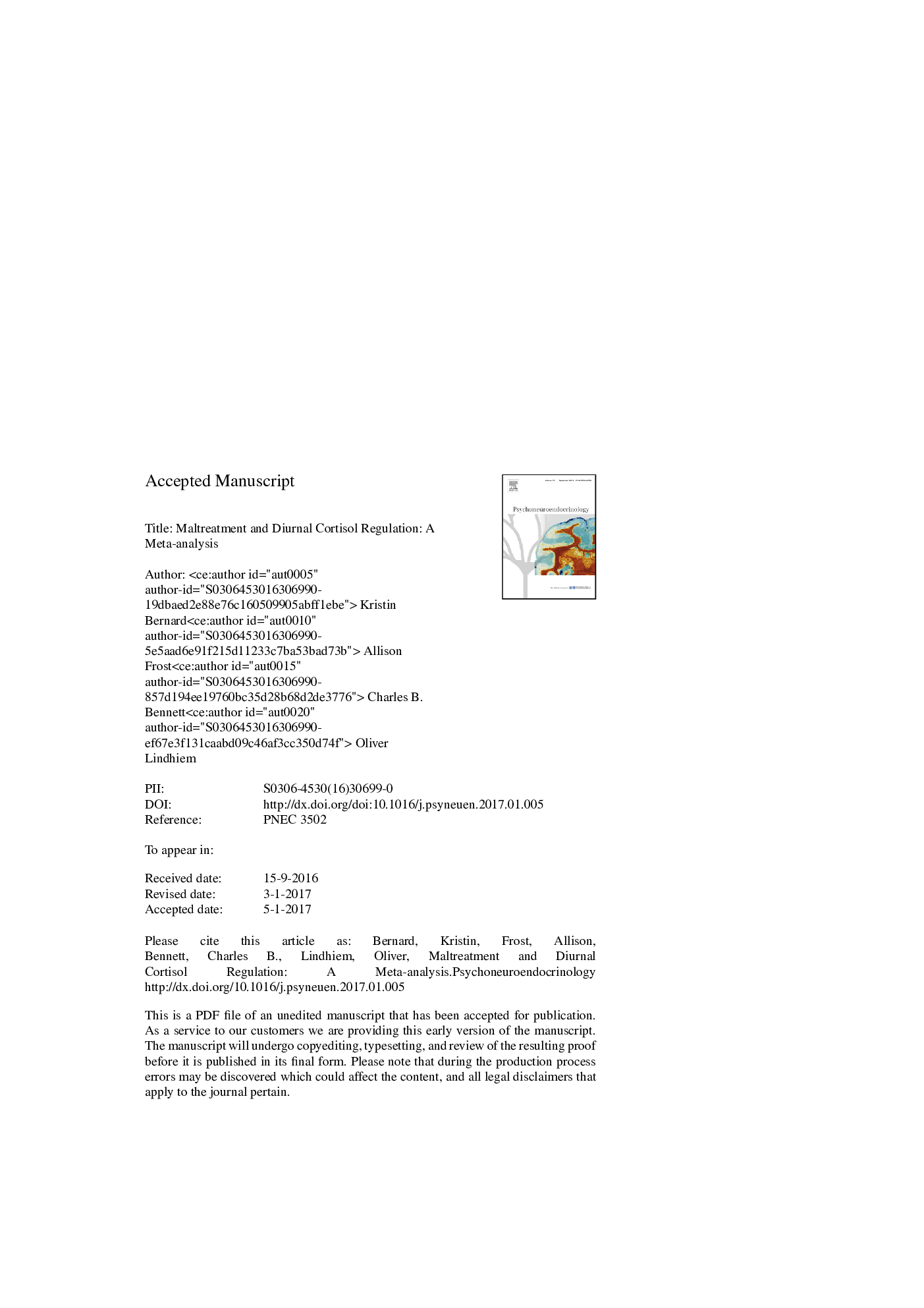| Article ID | Journal | Published Year | Pages | File Type |
|---|---|---|---|---|
| 4934488 | Psychoneuroendocrinology | 2017 | 41 Pages |
Abstract
Childhood maltreatment leads to a host of negative physical and mental health outcomes, with cortisol dysregulation implicated as a possible mechanism. Given inconsistencies across in the literature regarding the direction and magnitude of the association between maltreatment and diurnal cortisol regulation, the current meta-analysis of 27 studies aimed to examine the association between maltreatment and at least one of 3 indicators of diurnal cortisol regulation: wake-up cortisol levels, the cortisol awakening response (CAR), and/or the diurnal cortisol slope. Effect sizes were calculated using Hedges' g formula and were pooled using a random effects model. For the association between maltreatment and wake-up cortisol level, the aggregate effect size was g = 0.08, p = 0.26. Notably, effect sizes between maltreatment and wake-up cortisol were significantly larger (Qbetween = 5.18, p = 0.02) for studies of agency-referred samples, g = 0.24, p = 0.006, than studies for which maltreatment status was based on self-report, g = 0.00, p = 0.97, with maltreatment associated with reduced wake-up cortisol levels. For the association between maltreatment and the CAR and diurnal cortisol slope, the aggregate effect sizes were non-significant and none of the moderator variables were significant. Although results did not indicate a large and robust association between maltreatment and various indicators of diurnal cortisol, studies with more rigorous designs (i.e., agency-referred samples) showed a small, significant association between maltreatment and blunted wake-up cortisol levels, suggesting a pattern of hypocortisolism.
Related Topics
Life Sciences
Biochemistry, Genetics and Molecular Biology
Endocrinology
Authors
Kristin Bernard, Allison Frost, Charles B. Bennett, Oliver Lindhiem,
